Description
There are ten mini lessons on the following topics:
Mini Lesson #1: Traits of a Memoir
Students will learn that memoirs have typical plot elements because they are a type of storytelling. But, memoirs also tend to emphasize: reflection about the past, time and place shifts, flashbacks, character development and life lessons.
Mini Lesson #2: Brainstorming
Students will learn five techniques for brainstorming memoir ideas: mind mapping, memory maps, strong feelings table, sensory details table and listing lessons.
Mini Lesson #3: Personal Narrative vs. Memoir
Students will be able to distinguish between personal narratives and memoirs.
Mini Lesson #4: Transitions & Organization
Students will analyze transition strategies used in mentor texts and use transitions in their own writing to help readers navigate their memoir. Students will also consider different organizational structures based on the mentor texts they’ve read.
Mini Lesson #5: Descriptive Writing
Students will learn eight descriptive writing techniques by analyzing a mentor text.
Mini Lesson #6: Imagery
Students will learn how to analyze a text’s use of imagery and incorporate imagery in their own writing.
Mini Lesson #7: Metaphors & Similes
Students will learn how to incorporate literary devices into writing in purposeful ways.
Mini Lesson #8: Developing a Character
Students will learn multiple ways that they can develop the main character of their memoir.
Mini Lesson #9: Hinting at Theme
Students will learn that all stories have themes and include hints about the themes throughout. However, usually the theme(s) are not fully apparent until you read to the very end.
Mini Lesson #10 Revising vs. Editing
Students will understand the difference between revision and editing. They will use these techniques to improve their writing.
Each mini lesson is 1-2 pages and very easy to follow!
Here is how each mini lesson is organized:
Objective-the goal for the mini lesson
Materials- all the necessary charts/posters/videos/tools you need for the lesson
Hook- a fun way to start the mini lesson
Teaching Point- straightforward statement about what students will learn
Modeling- showing skill with writing samples/mentor texts
Practice-an opportunity for students to apply skills and practice with peers
Conferring-tips for how to discuss work with students with one-on-one conversations
Share-a way for students to share what they accomplished, struggles they faced and goals they have
Also Included in this Resource:
Teacher’s Guide
Editable Google Slides
Editable PowerPoint Slides
Posters
Writing Charts
Writing Samples
Editable Assessment Tools (Google Doc and Microsoft Word)
Videos
Audio and Video Walk-Throughs of Everything

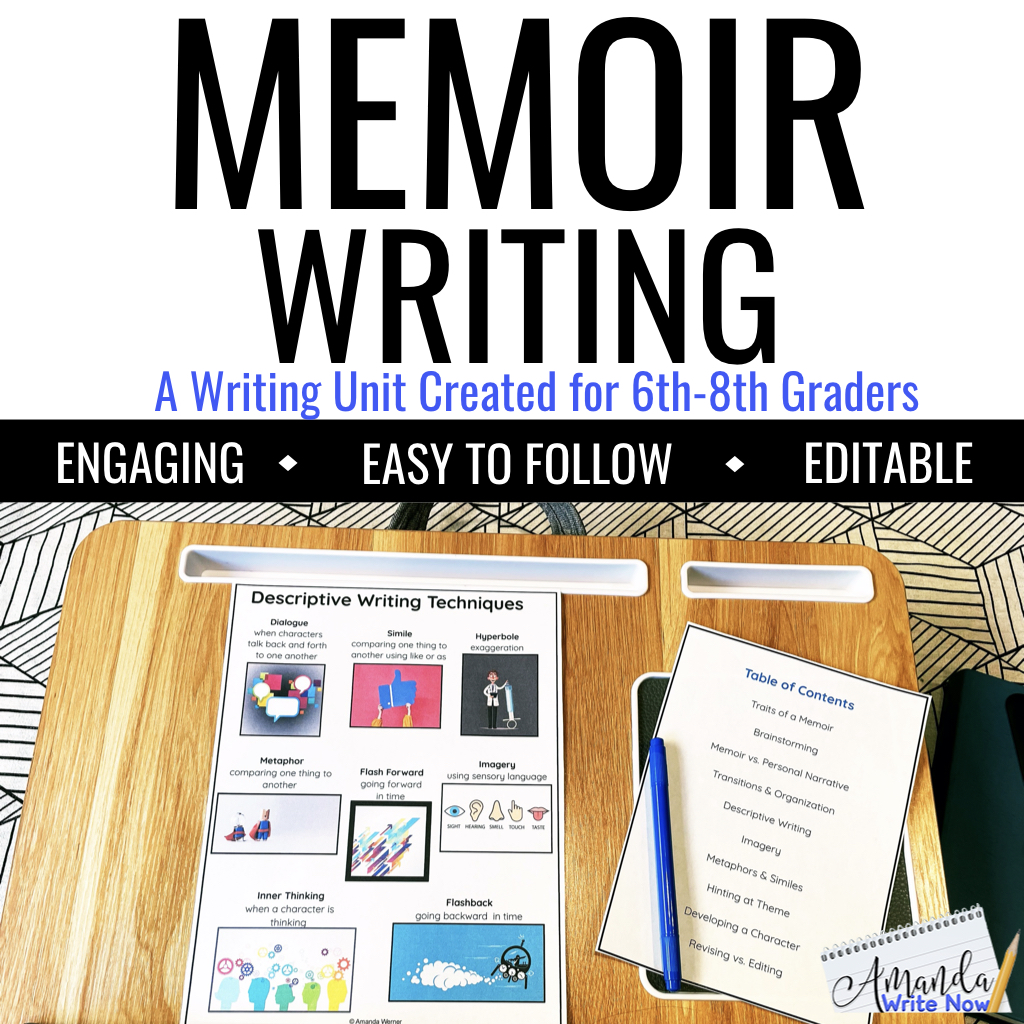



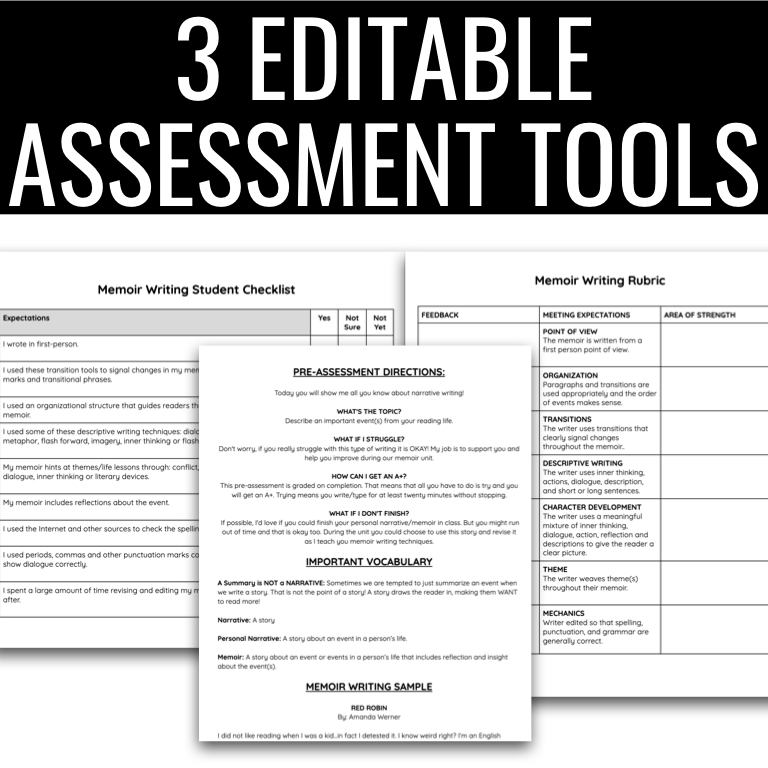
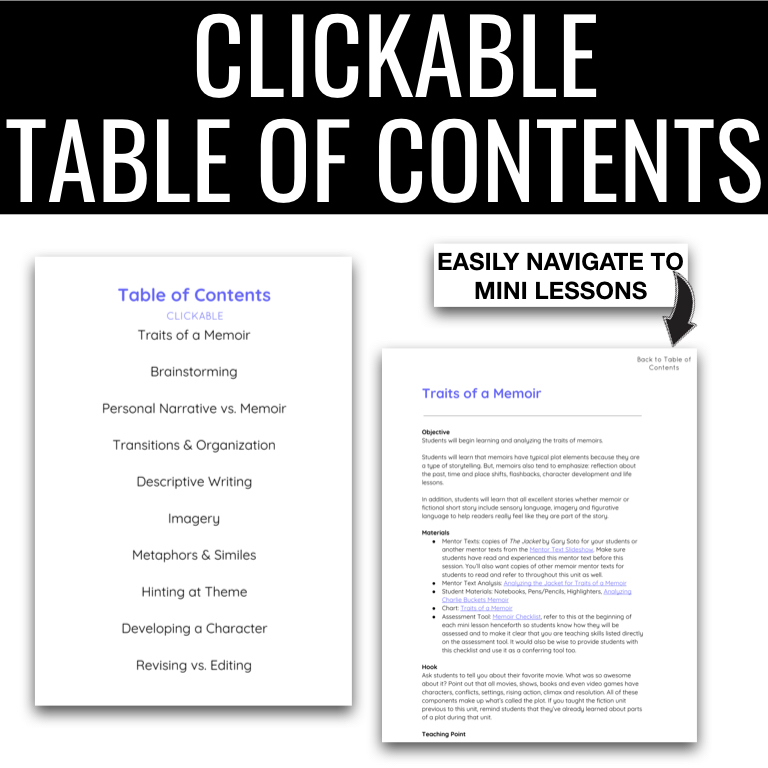
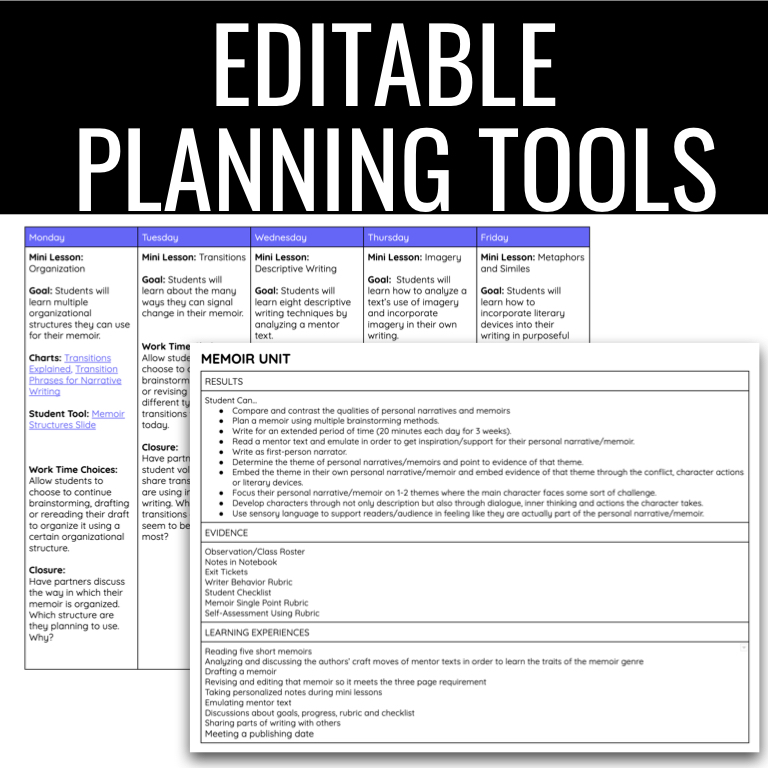

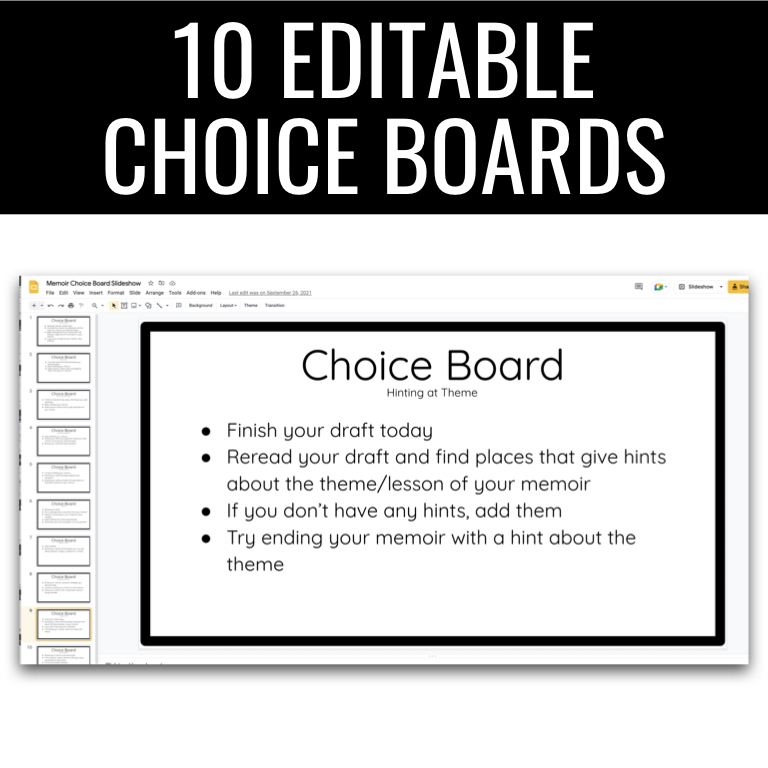
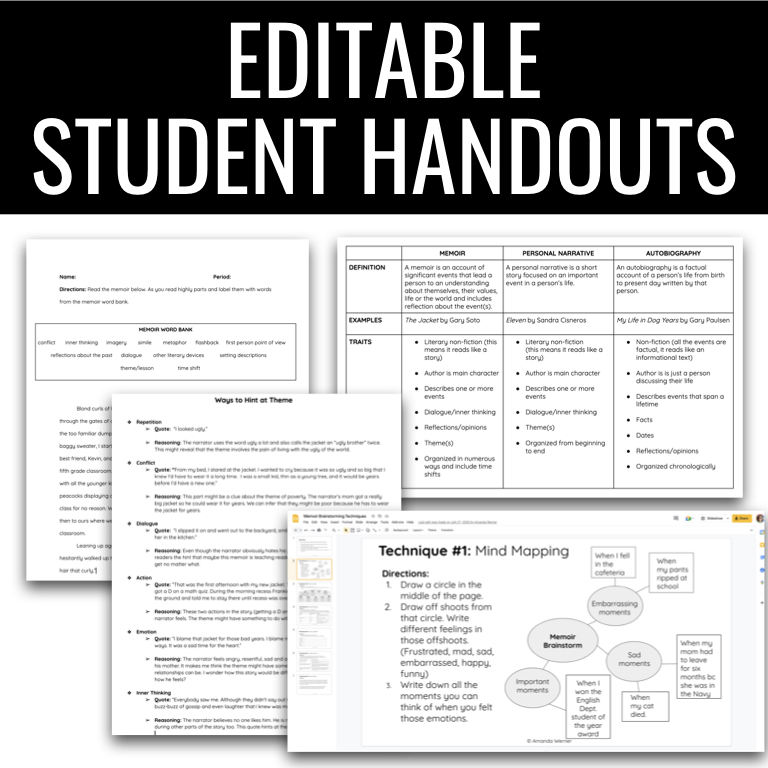
Reviews
There are no reviews yet.